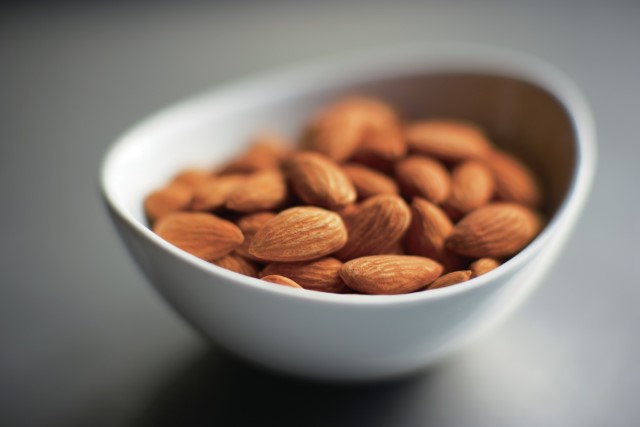Type-2 diabetes is becoming a significant health concern in India due to factors such as genetic predisposition, changes in diet, and rapid lifestyle shifts. A study, published in The Lancet Diabetes and Endocrinology journal suggests, that by 2030 around 98 million people in India could have type-2 diabetes. With the abundance of information about food and nutrition, it’s crucial to understand how each recommendation applies to you and which ones are truly advantageous. Here are three foods that can help improve diabetes management.
Almonds
Consuming a handful of almonds may benefit both short-term and long-term blood sugar control for individuals with uncomplicated type-2 diabetes. Including almonds in a meal can help prevent sudden spikes in blood sugar levels by slowing down the release of glucose into the bloodstream, thanks to their monounsaturated fatty acids content.
Almonds can also aid in boosting metabolism in individuals managing type-2 diabetes, consequently facilitating faster calorie burning. This metabolic boost is attributed to almonds’ nutritional profile, which includes fiber, essential vitamins like folate and vitamin E, phytochemicals such as phytosterols and flavonoids, minerals like magnesium, potassium, and calcium, as well as unsaturated fatty acids.
Additionally, people with type-2 diabetes face an increased risk of developing heart disease. Almonds contain vitamin E and healthy fats that play a crucial role in averting heart complications. Research conducted by Harvard University suggests that incorporating almonds into the diet can reduce the risk of cardiovascular disease among adults with type-2 diabetes.
Green leafy vegetables
While many of us recognize the importance of incorporating greens into our diets, research indicates that consuming green leafy vegetables can significantly decrease the risk of developing type 2 diabetes. Examples of green leafy vegetables that can be regularly included in one’s diet include spinach, cabbage, drumstick leaves, mint leaves, amaranth leaves, fenugreek leaves, and radish tops, among others. These vegetables are abundant in fiber, vitamins, and minerals, and some also contain omega-3 fatty acids in the alpha-linolenic form.
There are various ways to incorporate these green leafy vegetables into your diet, such as adding them to soups, and salads, or even consuming them as a green juice. If you choose to cook them as a curry, it’s advisable to avoid adding excess oil to maintain their nutritional benefits.
Yogurt
Homemade yogurt, known as “dahi,” has been a staple in the Indian diet for centuries. In recent years, yogurt has gained popularity for its numerous health benefits. According to a Yogurt and Diabetes study, consuming yogurt may decrease the risk of type 2 diabetes, especially in healthy and older adults with a high cardiovascular risk. The study found that there was a 14% lower risk of type 2 diabetes among those who consumed 80–125 grams of yogurt per day compared to those who consumed no yogurt at all.
Yogurt can be particularly beneficial for managing diabetes because it is low in carbohydrates, high in protein, and supportive of gut health. When purchasing yogurt, it’s advisable to opt for the plain variant rather than flavored options. Plain yogurt allows for better control over added sugars. For added nutrients and flavor, consider topping your yogurt with healthy options such as sliced almonds or strawberries.

